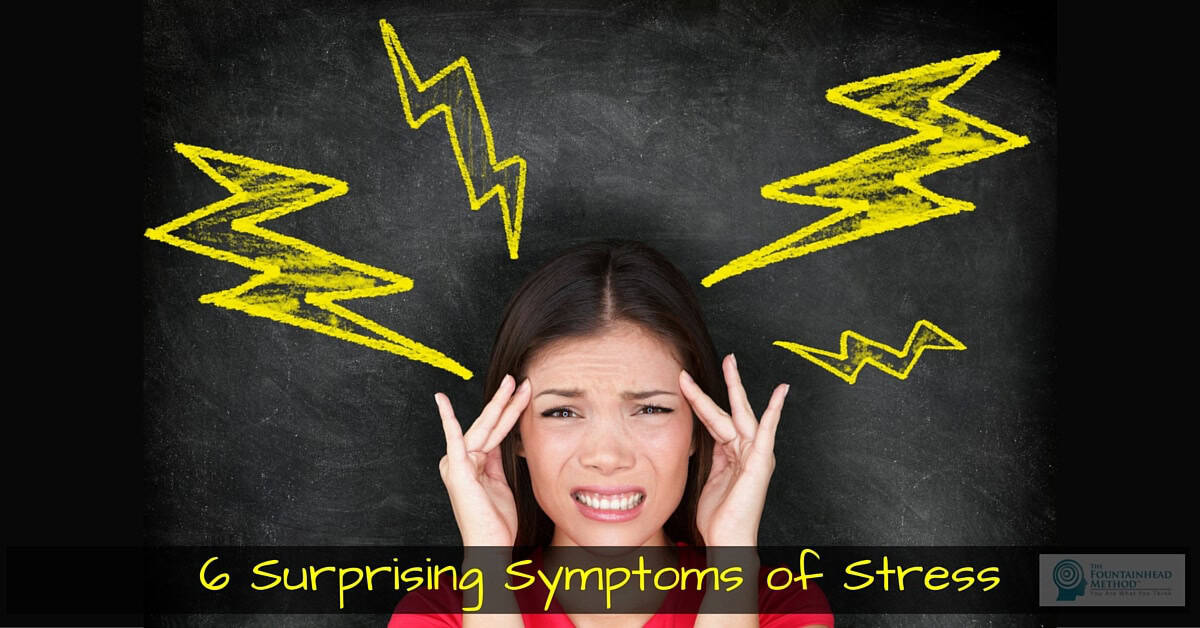Stress can manifest itself in a variety of different ways and even though you may not realise it, these symptoms may be affecting your health.
Although the more common effects of stress may be easy to recognise and those in tune with their bodies may find stress management a breeze, not all of us are able to halt that headache before it hits. But stress can also have some unexpected effects on our bodies and behaviour, from slipping on words to nosebleeds.
Before we introduce the more surprising signs of stress, here are the most common symptoms, so being able to recognise them can give you a leg up on your stress management.
Common effects of stress
- Headache
- Muscle tension or pain
- Chest pain
- Fatigue
- Stomach upset
- Frequent insomnia and sleep problems.
Most people throughout their lives will suffer from these symptoms from time to time, but more unusual signs of stress can be awkward, irritating or downright embarrassing.
Uncommon Symptoms of Stress
Nosebleed nuisance
Brain short-cuts
High-stress situations, which are commonplace in the work environment, can trigger the release of fight-or-flight hormones, such as adrenaline. While these natural chemicals heighten your brain’s alertness and threat-detection, they can also play havoc with your cortical networks, which are responsible for critical thinking, contemplation, and planning. Because your body is conserving energy for a physical confrontation, you may stumble to find the right words during a presentation in front of the boss and your colleagues.
Spot the stress
In some cases, outbreaks of acne can develop through the elevated levels of the stress hormone, cortisol. The skin’s sebaceous glands, which secrete an anti-inflammatory waxy oil kick into overdrive, leaving you not only with pimples but excessive flushing, eczema and other irritating skin conditions.
Excuse me
Stress can also trigger the release of another fight-or-flight chemical known as corticotrophin-releasing factor (CRF). This chemical plays around with intestinal function and acts as a helper to remove excess weight in case you need a speedy getaway during a confrontation. Of course in modern times, we rarely have to flee from battle, so some people under intense pressure develop diarrhoea.
Hair today, gone tomorrow
There are many reasons for hair loss, from medication to genetics, but stress can also be a contributor. Alopecia areata is an autoimmune disorder in which white blood cells attack hair follicles, causing hair to fall out in patches on the scalp. Another condition with even more extreme results is called telogen effluvium, a sudden loss of hair, sometimes up to 70%. In this condition, the hair loss can occur months after a stressful event, making it difficult to link it to the stress source. Thankfully it’s usually a problem that corrects itself once the stressful event is over.
Eye eye
Eyes can also feel the impact of stress and these eye symptoms range from simple eyelid twitches to hysterical blindness. While there are many causes of hysterical blindness, most of them point to some type of anxiety or psychological trauma that triggers this temporary blindness, and in most cases trying to identify the underlying cause of the emotional stress is the treatment. A more common symptom, an involuntary eyelid muscle spasm called Myokymia, can also be induced by stress.
Some methods we recommend to effectively manage stress
Prevention is better than cure, and stress that’s left to fester can contribute to mental health problems, such as depression and anxiety, along with physical problems like high blood pressure and heart disease. So before your shoulder stiffness becomes a real pain in the neck, here are some methods for effectively reducing stress:
Stop the stress and breathe, mindfully
Take time every day to sit and be in the present moment. Daily mindfulness sessions cultivate a clear state of mind and by focusing on the here and now, people who practice mindfulness find that they are less likely to feel anxious about the future or replay events from the past.
Do you like to move it, move it?
Find some type of physical activity which you enjoy and try to incorporate it into your daily routine. The key benefit of exercise is to increase the body’s oxygen supply which helps everything function at its best, including your mental state, as the release of happy hormones flow through your body.
Flush out and fill up
Flushing your system with plenty of water can be a great way to keep healthy and hydrated, along with helping your skin settle down. The recommended intake for general health is 1 litre per 25kg, so fill up your water bottle and drink your H2O.
Stretch and hold
Regular yoga practice can not only help the body with balance and strength but can focus on clearing and calming the mind. This can regulate the stress response system by reducing the heart rate, lowering blood pressure and easing respiration.
Stress-related illnesses can be debilitating, so combining the methods above with a healthy diet and learning to recognise your stress-indicators before they take hold is vitally important. If you or a loved one are suffering from stress, anxiety or depression, please take a look at our website or contact one of our consultants to find out more about our holistic programs at Palladium Private.



